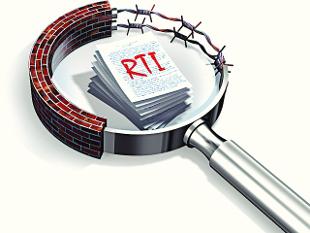Modi government rejected 8.4% applications in 2014-15: Central Information Commission

NEW DELHI: In its first year in power at the Centre, the Narendra Modi government has rejected the most number of applications under Right to Information Act. The rate of rejection of RTI applications by central ministries and departments has climbed to 8.4% in 2014-15 - the highest ever since 2006-07.
An analysis of the annual data released by Central Information Commission (CIC) reveals that the rate of rejection climbed up from 7.2% in 2013-14 to 8.4% in 2014-15. A comparative of previous years reveals that the rate of rejection was higher than this only in 2005-06 - the first year of implementation of RTI Act when it was 13.86%. The following year in 2006-07 the rate of rejection was 8.4%. Since then, the number of RTI requests rejected on various grounds climbed down steadily reaching an all-time low of 5.10% in 2010-11.
The analysis of the annual data done by the Commonwealth Human Rights Initiative (CHRI) shows that prominent ministries and departments have witnessed a rise in rejection rates of RTIs. These include Prime Minister's Office, finance ministry, home ministry, defence ministry (including the three defence forces) and ministry of external affairs. A more heartening trend is seen in some departments where the rejection rate has shown a downward trend. These include Cabinet Secretariat (gone down from 15.10% in 2013-14 to 4.3% in 2014-15), President's Secretariat, Comptroller and Auditor General, Delhi Police and ministry of personnel, public grievances and pensions.
CHRI's Venkatesh Nayak, who analysed the annual data, says, "On the face of it, this comparative figure appears to support the anecdotal experiences of many an RTI user/activist that the public authorities under the Government of India have begun rejecting more and more RTI applications under the NDA regime. However this trend requires deeper analysis to ascertain whether the rejections were justified under the law or were simply anti-transparency bureaucratic responses."